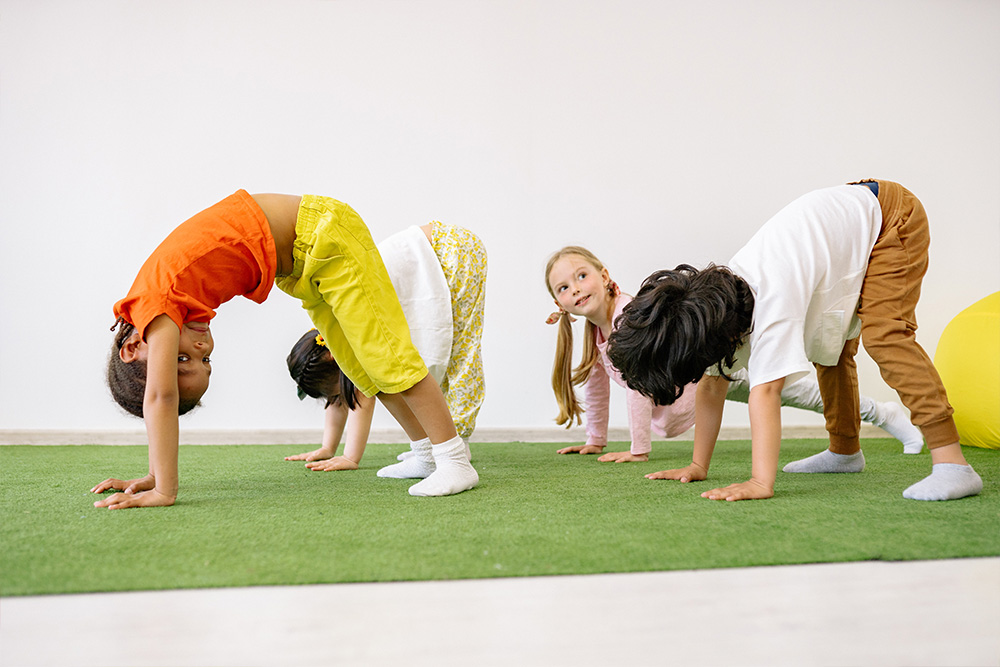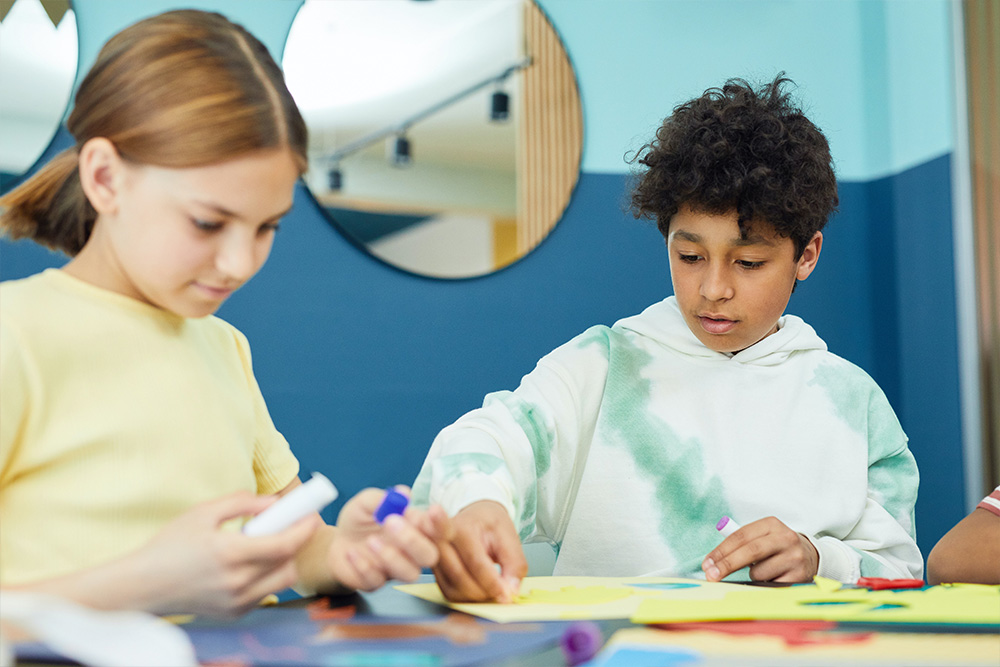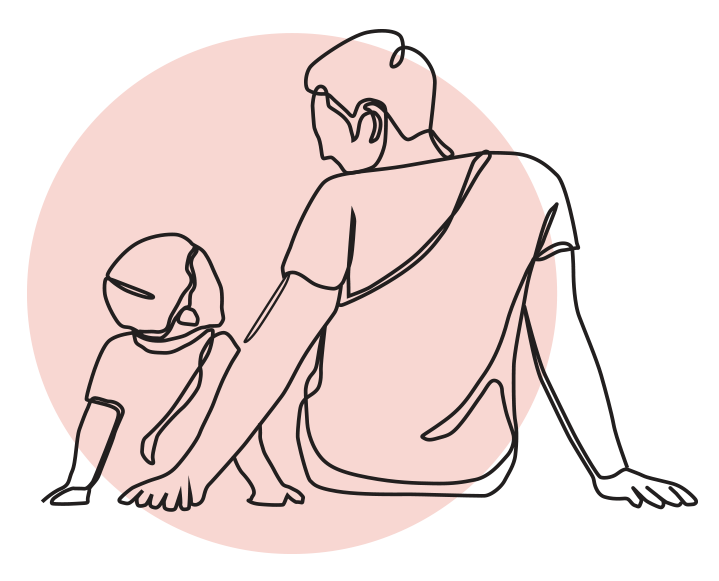One of the most distressing aspects of divorce or separation is the fear that it’s going to have a negative impact on your children. If you are in the process of separating from your partner or facing the possibility, then you may already be worried about the impact of living with parental conflict. When the decision to separate is made, there’s the worry that your child won’t cope with a new routine and two places to call home. All of this when you are most likely under intense emotional and financial pressure yourself.
Some research has implicated divorce during childhood as a factor in later life behavioural and relational struggles so it’s important to consider the potential for harm but that said, divorce doesn’t always lead to negative outcomes. Our therapists have put together advice and strategies below to help you negotiate this challenging time. The focus is on younger or primary school age children but many of the suggestions apply to all ages.

What can we do to mitigate the distress of parental separation on our children?
The answer sounds simple but in the eye of the storm it’s not. Children must be prioritised, and their practical and emotional needs kept in mind at all times. If parents are distracted by the turmoil of their separation, they may not adequately attend to their children’s needs. And this is when the damage is done. When parents are able to prioritise their children’s needs, a securely attached child does not need to become insecurely attached as a direct result of their parent’s separation. Crucially, children are protected by the presence of at least one containing, emotionally available, and loving adult. Their secure attachment figure. If you’re reading this, that person is probably you.

How to talk to your child about your separation?
When you first tell your child about the planned separation, it’s advisable to have a script that both parents agree on. It can be very hard to find the language so take time over this. You know best the words that will make sense to your child. Think of it from their perspective as they only need to know the aspects of the divorce that impact them and are age and developmentally-appropriate for them.
- Discuss the words you are going to use with your ex first so that you can both help the child understand what is happening in the same way. Ideally, you will tell them together. If that’s not possible then using the same/similar language to explain the situation is important. It will help the child feel safe and to feel that their parents are communicating with each other.
- Remind children that both parents love them and will always be there for them. Be honest when talking about what is happening but keep in mind the child’s age and understanding. They do not need to know everything, but they do need a coherent ‘narrative that is true and makes sense to them.
- Avoid blame and don’t share any negative feelings the adults have about each other. This is very confusing and your child may feel they need to take ‘sides.’ Any attempts to alienate the other parent wounds the child the most.

First Steps Towards Co-parenting
It’s more and more common for both parents to play an active role in raising their children and there are lifelong benefits for the child who is able to maintain strong relationships with both. But co-parenting can mean many things and working out the logistics takes time and requires open communication with someone you are separating from (quite possibly because of communication difficulties). Here are our recommendations for co-parenting safely:
- Make a co-parenting plan: to discuss and manage shared childcare arrangements, to work out school runs, weekends and holidays. Always keep in mind the best interests of the child for whom stability and consistency is paramount. There are an increasing number of apps for co-parents which help with logistics and keep messages in a controlled space.
- Maintaining consistency: Agree things like bedtimes and homework so that they are approached in a consistent way across the two homes. They do not need to be identical but consistent work and sleep routines are extremely helpful.
- Discipline or boundary setting is often a hotly contested area of parenting. It will really help your child if you can agree on your approaches to discipline and maintain clear boundaries. As your child may be acutely sensitive during this time, a clear but gentle approach is recommended.
- Be flexible (occasionally): this might sound counter-intuitive when we are talking about the need for consistency but unexpected situations do arise so being prepared to adjust to sudden cancellations and change is better than being completed thrown by it and causing further arguments.
- It is really important to speak to their school to let them know the situation so that they can take additional care of your child and keep you informed about any changes or concerns they may have.

What to do when communication between parents feels impossible?
Divorces can be very painful and even previously reasonable people, driven by hurt and rage become dysregulated and make poor decisions. However difficult your relationship it is important to ensure that difficult or stressful conversations that are likely to lead to more conflict happen well away from your child. Peaceful, good communication around the child so that their stress response system is not constantly triggered is a powerful protective factor.
The best case scenario is that you and your ex can agree on all matters relating to your children but if there is no agreement and it’s not possible to make a co-parenting plan with your ex, then you may wish to explore the concept of ‘parallel parenting’ explained in Tiffany Austin’s book ‘Co-parenting with a toxic ex.’
Whatever your ex is doing, remember that you can still be the loving attachment figure, providing a secure base from which your child can flourish. You are the greatest ‘strategy’ when it comes to supporting your child through major life changes such as parental separation. Even when relations are strained and you are unable to agree on how to parent, there are things you can do to support them:
- Focus on the transition between homes: when a child moves between homes try to make the transition smooth and positive. If your ex-partner cannot do this then make it swift and do not engage with any attempts to cause an argument. Civility and respect between parents are important.
- Children should be allowed to bring toys or special things between homes. This will support them to feel safer. It will also help them keep the other parent closer. You can plan this with your child in advance so they feel they are taking a part of you with them.
- It is recommended that children should be allowed to speak to the parent they are not with when they want to.
- Reassure your child: if your ex doesn’t turn up or lets them down in the early stages of co-parenting, take them for a distracting treat and reassure them that they are loved by both parents. Saying these things out loud does help in times of uncertainty.
- Create a safe space to listen to your child’s (possibly angry or sad feelings) about the change. Try not to counter their viewpoint, instead focus on the feeling they are sharing and empathise with that.
- Don’t forget to look after yourself. We are talking about a huge life change so you may be coping with complex feelings of rage, guilt, and sorrow. It will take time to process your own feelings but self-care will help you regulate your emotions. You may even find that you have more time to do this if you are co-parenting. Seeing close friends, walking in nature, exercising, going to the cinema -whatever works for you. A better-regulated parent inevitably means a happier child.
Even if you try and put all these recommendations in place, there is not point avoiding the fact that divorce is likely to have an impact on your child at least in the short term. The fact that you notice their confusion or pain and are emotionally available to them during this time of change will ensure they grow more resilient and feel able to face the many challenges that life will inevitably throw at them, secure in the knowledge that they are loved unconditionally by you.
If you believe your child is at risk of significant harm from your partner you are advised to seek legal advice to restrict access.
If you are a parent or carer in need of advice on helping your child(ren) during divorce or separation, our online therapists are here to help with the advice and tools you need. Book an Online Parent Consultation or get in touch with Chloe for more information.
Recommended Books for Children:
“Dinosaur’s Divorce” by L K Brown & M.Brown. A colourful, informative book to help children understand divorce. Helps explain: what divorce words mean; why parents divorce; how to live with one parent and visit the other; how to have two homes; and many more issues and topics..
“Two Places to Call Home” by Phil Earle. An uplifting picture book about Florrie who’s parents have divorced, meaning she now lives in 2 houses. She doesn’t feel brave enough to do this, but both parents find a way to show her she’s braver than she thinks.
“Mum and Dad Glue” by Kes Gray. A little boy tries to find a pot of parent glue to stick his mum and dad back together. His parents have come undone and he wants to mend their marriage, stick their smiles back on and make them better. But, as he learns, even though his parents’ relationship may be broken, their love for him is not.




